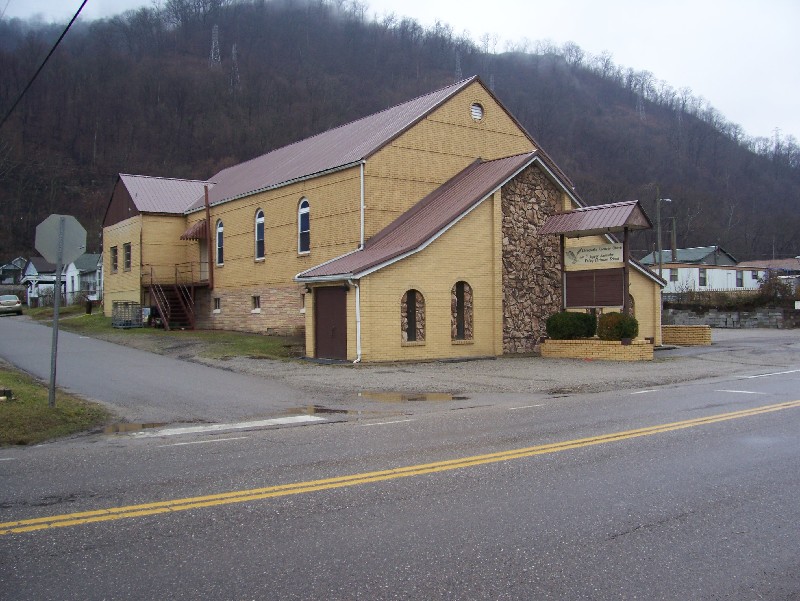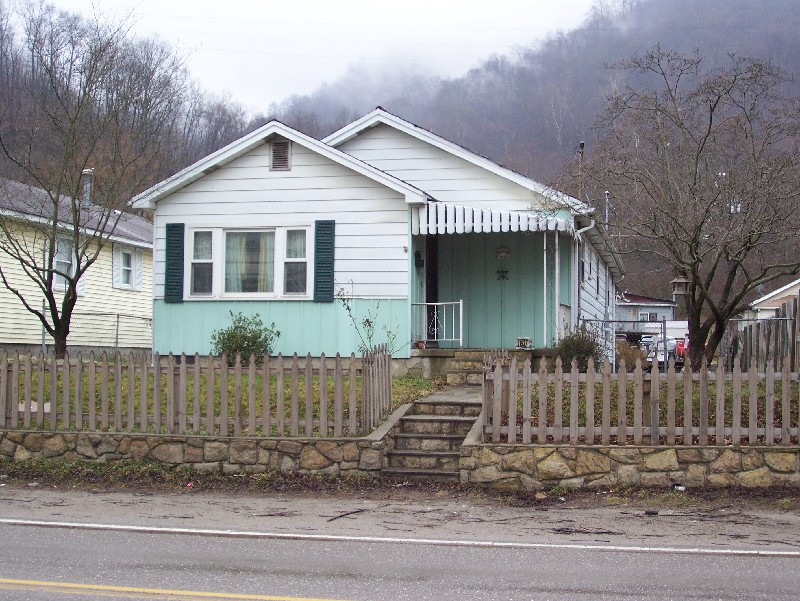Go San Angelo - January 29, 2009
by Paul A. Anthony
Citing federal conspiracy and Mann Act investigations, YFZ Ranch leader Merril Jessop invoked his constitutional right against self-incrimination more than 250 times last week, according to a deposition transcript obtained Wednesday by the Standard-Times.
Jessop is a top leader of the Fundamentalist Church of Jesus Christ of Latter Day Saints that runs the polygamous sect's Schleicher County ranch. The Mann Act prohibits the transportation of people across state lines for the purpose of illegal sexual activity.
Jessop invoked the Fifth Amendment 267 times Friday on questions as minor as whether he drives a car and as significant as whether his now-14-year-old daughter was involved in a sexual relationship with sect leader Warren Jeffs.
"Upon the advice of counsel, he's exerting his Fifth Amendment" rights, Jessop's attorney, Amy Hennington, said early in the all-day Friday deposition, taken in the course of a custody case involving a girl alleged to be his daughter-in-law. "The basis is that there is potential state investigation still ongoing, as well as criminal investigations under the Mann Act out of the U.S. Attorney's office."
In a phone hearing with 51st District Judge Barbara Walther over Jessop's refusal to answer questions early in the proceeding, Hennington told the judge she had concerns about an ongoing federal investigation into alleged FLDS violations of the Mann Act and the Racketeer Influenced and Corrupt Organizations Act, better-known as RICO.
RICO can be used to prosecute organized crime, as well as wire and mail fraud.
The plethora of Fifth pleadings was the focus of a lengthy hearing Monday that stretched into the night. Jessop and sect spokesman Willie Jessop, who was deposed Monday morning, took the stand to explain why they had refused to answer the vast majority of the questions asked of them by Denton family law attorney Natalie Malonis.
Malonis has said she seeks information about the sect's finances in the hopes of providing financial means for her 17-year-old client.
That girl is a daughter of Jeffs who sect documents say was married at age 15 to Raymond Jessop, Merril Jessop's then-36-year-old son.
Jessop pleaded the Fifth to questions involving the girl - including whether she has a baby with his son. He also refused to answer questions about his daughter who sect documents describe as being married to Jeffs at age 12, and who photos released in previous hearings show kissing the sect leader deeply shortly after their alleged marriage.
Malonis also had asked whether Jessop knew if his daughter had a sexual relationship with Jeffs, or a child.
"If they are true Fifth Amendment invocations, the implication is that the young ladies have children," Malonis said Wednesday. "That's the inference to be drawn. If the answer is, 'No,' or, 'I don't know,' I don't know why he wouldn't say that."
Hennington declined to comment on the deposition.
In the Monday hearing, Walther did not rule directly on Jessop's assertions, instead saying she would issue a written order, which has not yet been made, a court clerk said.
Merril Jessop also refused to answer all questions relating to the sect's finances - including those apparently based on sect documents referring to efforts to create a trust in Texas with funds taken from the Utah-based United Effort Plan trust.
The Utah trust has been taken over by the courts after allegations that FLDS leaders were diverting funds for unauthorized uses, such as building the 1,700-acre Schleicher County ranch that authorities raided in early April.
"This witness has information about the way that the financial structure's set up, and how my client and her family, their needs are taken care of, their living expenses ... how much control and choice they have over their own destinies," Malonis told Walther during the phone hearing Friday. "He's got information as an authority figure in the church over the structure of the church and that kind of thing. ... He does have information that's relevant to how this family can support themselves."
Citing what she said was a dictation from Jeffs to Jessop concerning the type of food allowed in a particular residence, Malonis jumped into a line of questioning aimed at determining whether her client will be free to make her own choices when she turns 18 in July.
Jessop pleaded the Fifth to questions about whether FLDS leaders controlled their congregation's expenses, purchases, dress, food, livelihood, living spaces and interpersonal contact.
"Are there any aspects of members' lives that are not governed by the religious leaders?" Malonis said.
"My client is invoking his right to assert the privilege against self-incrimination pursuant to the Constitution," Hennington replied.
The sect, its ranch and its members have been the focus of numerous investigations since the night of April 3, when the state's Child Protective Services agency and the Texas Rangers first entered the compound.
Child Protective Services is moving toward trials in the custody cases of two girls, while 12 FLDS members, including Merril and Raymond Jessop, have been indicted. A court-appointed manager of the UEP trust also has been investigating the sect's finances, and a sealed federal search warrant has led to the federal investigations referenced by Hennington.
Jessop did occasionally answer questions - roughly one out of every six - but often refused to respond to even the most basic inquiries.
For example, he acknowledged he has a son Raymond Jessop, but would not give his age. He refused to give his highest level of education, but later, when asked by another attorney, said he did not attend high school.
He pleaded the Fifth to a question early in the proceeding about whether he has any daughters, but later affirmed when asked specifically about two girls, including the alleged Jeffs bride.
"It could incriminate him under any of the federal offenses that are under RICO, Mann Act, any of the potential other federal things that may or may not be under investigation that the U.S. attorney hasn't indicated," Hennington said when asked why Jessop was invoking the Fifth on the question about his son's age, which is public record and has long been part of the evidence stream to come out of the case. "There are state offenses that (have) particular potential implications."
All pleadings were made by Hennington for her client, with an occasional follow-up question from Malonis asking Jessop whether he agreed with Hennington's assertion.
The Fifth Amendment can be used to protect a witness from self-incrimination in a criminal case, but clients and attorneys are not allowed to simply plead the Fifth to any question - a point that led to Monday's hearing, as well as the teleconference with Walther on Friday morning.
"The witness is not excused from answering simply because he declares that he would incriminate himself," Malonis argued Friday, according to the deposition. "In other words, just him saying so does not itself establish the hazard of incrimination. That is the court's call whether the silence is justified."
Hennington argued that Malonis' questions were leading to areas where ongoing investigations or the nature of the charges against Jessop made self-incrimination a possibility.
"It's a reasonable fear that what he's going to say is incriminating (and) could lead to incrimination or just incriminating himself," she told Walther. "With my client being under indictment already ... the state hasn't provided me any specific things yet, but I think it's reasonable that this as a deposition, as a sworn statement, could be used by the state."
Several pleadings seemed to go beyond that, however, and the mountain of non-answers clearly led to tensions between the several attorneys in the Schleicher County courtroom.
Jessop refused to say even whether he was a member of the FLDS or whether he worshipped a higher power. He would not say whether he is a member of YFZ Land LLC, despite the fact that he is listed as the limited liability corporation's registered agent in public records filed with the state.
At one point, Malonis asked Jessop whether he drives a car.
"Upon the advice of counsel, my client is invoking his right to assert the privilege against self-incrimination, and the basis of that is the ongoing criminal investigation," Hennington replied.
"OK," Malonis replied. "Can you state specifically what offense he might be in fear - or let the witness state what he is afraid of being incriminated by (when) answering directly whether he drives an automobile?"
Jessop cut in, saying, "Probably because I can't see."
"You don't want to drive because you can't see," Hennington repeated.
Malonis, seemingly exasperated, replied, "And If you don't, you can say you don't, and I don't know how that can be incriminating."
Deposition excerpts
Extracts from the Friday, Jan. 23, deposition of YFZ Ranch leader Merril Jessop, taken from 165-page transcript obtained Wednesday by the Standard-Times. Natalie Malonis is the attorney deposing Jessop, and Amy Hennington is Jessop's attorney.
Natalie Malonis: How are you employed?
Amy Hennington: My client is pleading the Fifth Amendment.
NM: Are you employed?
AH: My client is pleading the Fifth Amendment.
NM: Do you have a source of income?
AH: My client is pleading the Fifth Amendment.
NM: OK. Do you own any assets?
AH: My client is pleading the Fifth Amendment.
NM: Okay. Do you have any personal debt?
AH: My client is pleading the Fifth Amendment.
NM: Are you a member of the FLDS religious association?
AH: My client is pleading the Fifth Amendment.
NM: Do you have a religious association?
AH: My client is pleading the Fifth Amendment.
NM: Do you worship a higher power?
AH: My client is pleading the Fifth Amendment.
NM: Have [17-year-old girl] and Raymond Jessop had a child together?
AH: Upon the advice of counsel, he's asserting his Fifth Amendment (right). The basis is that there is (a) potential state investigation still ongoing, as well as criminal investigations under the Mann Act out of the U.S. Attorney's office.
NM: Okay. Are you taking the advice of your counsel and choosing not to answer that question?
Merril Jessop: Yes.
NM: Is that on the basis that it might incriminate you? Is that your understanding? I just want to make sure you're agreeing that you're not answering because you fear that it might incriminate you.
MJ: Yes.
NM: OK. Is your daughter [14-year-old girl] married to Warren Jeffs?
AH: Upon the advice of counsel, the client is invoking the Fifth. The basis is the ongoing investigation and the fact that ... he's under indictment.
NM: OK. When making an inference that she is married ... to Warren Jeffs, did she upon the happening of that event move into Warren Jeffs' home?
AH: Upon the advice of (counsel), my (client) is invoking his right to Fifth Amendment (protection). The basis (is) the same: He's under indictment, (and the) state and federal investigations.
...
NM: OK. Does your daughter, [name], have a child?
AH: Objection to form as to leading. Again, my client is also exerting his privilege under (the) Fifth Amendment. The basis is in particularly an indictment that is pending here in Schleicher County, as well as state and federal investigations.
NM: Are you aware of whether or not your daughter, [name], has engaged in a sexual relationship with Warren Jeffs?
AH: My client is invoking his privilege under the Fifth Amendment, the basis being the same as the others.
- To view the full transcript of the deposition, visit gosanangelo.com.
This article was found at:
http://www.gosanangelo.com/news/2009/jan/29/ranch-head-pleads-5th-267-times/








